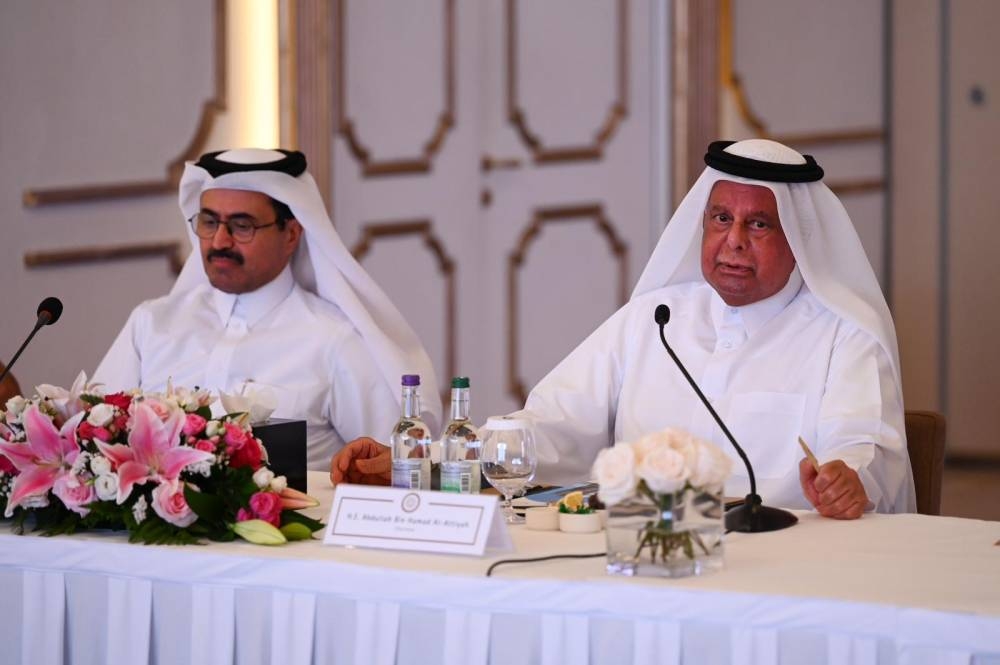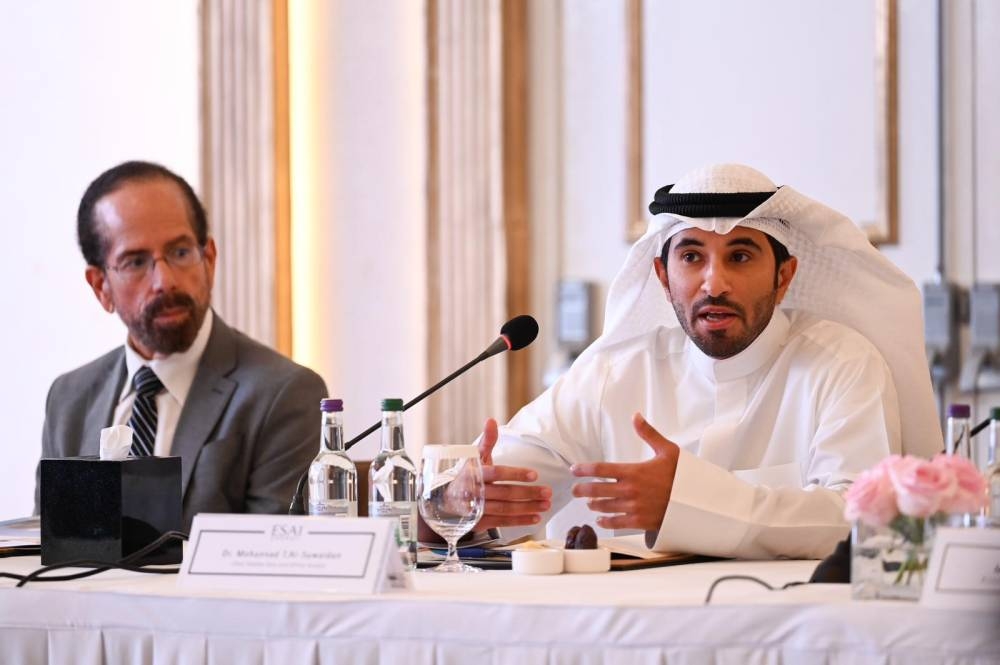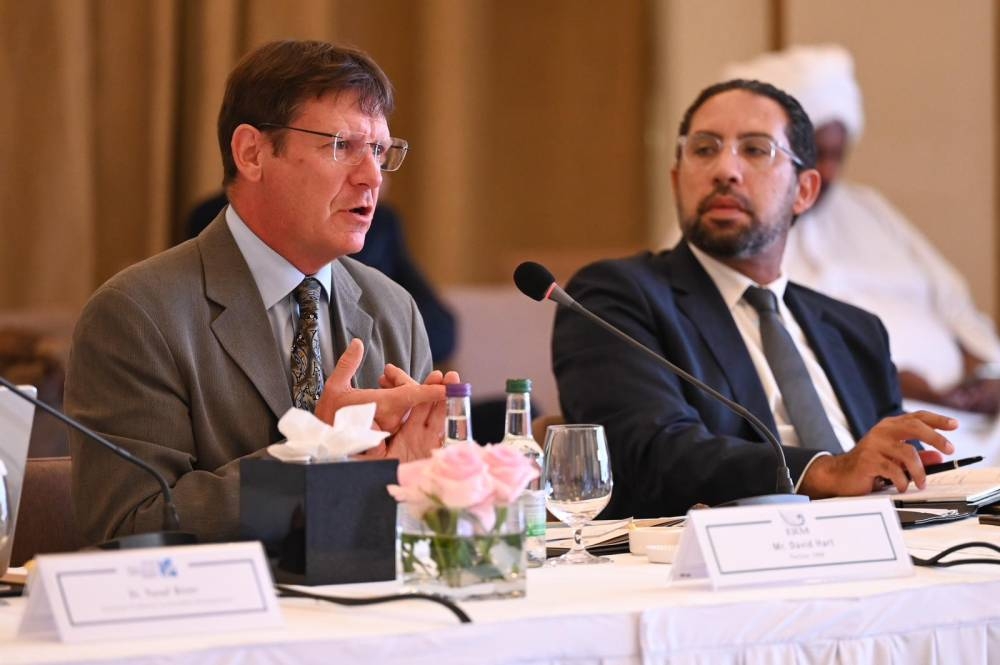Hydrogen deserves full attention of the industry due to the significant role it can have in the global energy mix in the coming decades, remarked HE Abdullah bin Hamad al-Attiyah, former Deputy Prime Minister and Chairman of the Board of Trustees of the Al-Attiyah Foundation.
He was speaking at the Al-Attiyah Foundation ‘CEO Roundtable’ in Doha Wednesday.
Al-Attiyah noted, “It was wonderful to hear expert insights from guest speakers and attendees on a topic that only going to become more pertinent. Hydrogen is a versatile energy carrier and with significant investment in the coming decades can help tackle various critical energy challenges.
“Furthermore, the Gulf (GCC) region is in pole position to become a major producer and exporter of hydrogen in addition to fossil fuels. The region boasts enormous renewable energy resources and has the necessary space to produce green hydrogen on a large scale.”
At the ‘CEO Roundtable’, top decision makers, internationally renowned experts and captains of industry came together to examine the opportunities and practical problems associated with using hydrogen as a fuel.
The high-profile event, titled ‘Hydrogen technology - from strategy to delivery’ was moderated by acclaimed broadcaster, Nawied Jabarkhyl.
The discussion featured guest speakers: David Hart, Partner at ERM: Environmental Resources Management; Gagan Porwal, Head of International Market Partnerships - Carbon Solutions at GE Vernova; Joe Seifert, CEO at Vertex Hydrogen Limited; and Mohannad T. al-Suwaidan, Chief Middle East and Africa Analyst at Energy Security Analysis Incorporated (ESAI Energy).
At the core of the forum, guests discussed how clean hydrogen, which is produced with renewable or nuclear energy, or fossil fuels using carbon capture, can help to decarbonise a range of sectors where it has proven difficult to reduce emissions such as long-haul transport, chemicals, and iron and steel.
Attendees were optimistic on “green” hydrogen, which is extracted from water by electrolysis using electricity generated by renewable energy sources (wind, solar, hydro), as countries transition to low emission economies and pointed to the large investment in projects in the MENA region as testament to its potential.
The panel also discussed “Blue” ammonia. Blue ammonia is a low carbon intensity fuel that can be used in industrial applications. It is made from nitrogen and blue hydrogen derived from natural gas feedstocks, with the carbon dioxide byproduct from hydrogen production captured and stored.
An attendee noted that Qatar can be a leader in this field as it is in the process of building the world's largest “blue” ammonia facility with a capacity of 1.2mn tonnes per year.
In August 2022, QatarEnergy Renewable Solutions (QRS) and Qatar Fertiliser Company (Qafco) signed an agreement for the construction of the Ammonia-7 project, which is expected to come into operation by the first quarter of 2026.
As part of the project, QRS will develop and manage integrated CCS facilities capable of capturing and sequestering about 1.5mn tonnes of CO2 per year, to cater to the new Ammonia-7 plant.
It will also supply more than 35 megawatts of renewable electricity to the Ammonia-7 facility from its PV Solar Power Plant in MIC, which is currently under construction.
Business
Hydrogen deserves industry's focus due to its rising role in global energy mix: Al-Attiyah
Top decision makers, internationally renowned experts and industry leaders came together at Al-Attiyah Foundation's ‘CEO Roundtable’ in Doha Wednesday

HE Abdullah bin Hamad al-Attiyah with HE Dr Mohamed bin Saleh-Sada, former Minister of Energy at the Al-Attiyah Foundation's ‘CEO Roundtable’ in Doha Wednesday.

At the ‘CEO Roundtable’, top decision makers, internationally renowned experts and captains of industry came together to examine the opportunities and practical problems associated with using hydrogen as a fuel.

